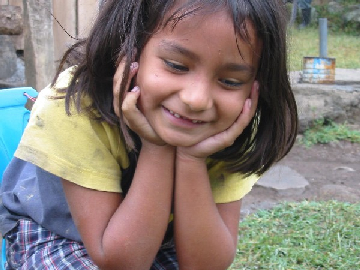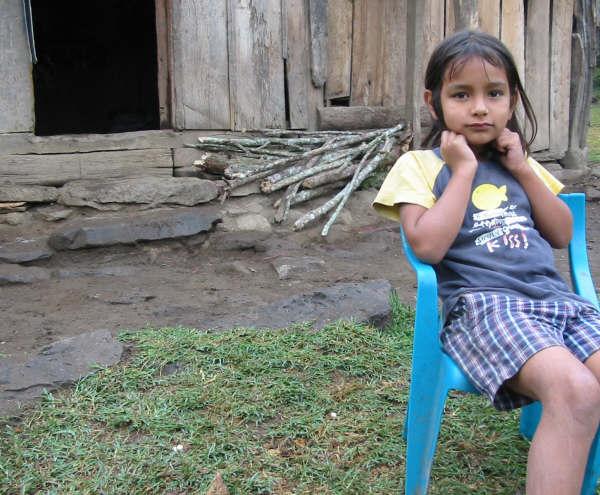THE MIST IS CREEPING through the banana trees and Albina drags us outside to show us her world.
She introduces us to the fat-bellied puppies first. The mother dog is thin and exhausted. She lifts her head just long enough to decide that we are no threat, then lets it flop back into the dirt.

